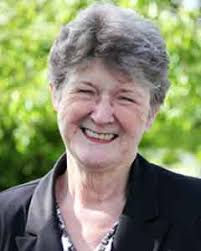 Joyce A. Scott retired from Texas A&M University-Commerce as Professor of Higher Education, after serving 32 years in academic administration at four public universities, a national association, and a state university system. She holds a BA in French and English from the University of Connecticut, an MA in French from the University of Virginia, and a Ph.D. in Romance Languages from Duke University. She is an avid supporter of the UConn Humanities Institute.
Joyce A. Scott retired from Texas A&M University-Commerce as Professor of Higher Education, after serving 32 years in academic administration at four public universities, a national association, and a state university system. She holds a BA in French and English from the University of Connecticut, an MA in French from the University of Virginia, and a Ph.D. in Romance Languages from Duke University. She is an avid supporter of the UConn Humanities Institute.
This interview has been condensed and edited for clarity. If you would like to support the work of the Institute, please see our giving page.
What first drew you to the study of literature?
I was read to from early childhood, all the time, and I was fascinated by storytelling. As I became able to read, I started taking off on my own, pursuing various adventures. Studying literature was therefore a continuation of a lifetime habit, the point being to get inside other lives and minds, to learn other cultures, or to learn about other cultures. It was a way of broadening my outlook, to travel the world without leaving home. I think one of the things that most fascinated me and kept me studying literature all the way through the doctorate was the cultural exploration. Being brought up in immediately post–World War II United States was a fairly anodyne experience, and exploring the rest of the world and other people’s perspectives and ideas was fascinating to me. So I just kept going. It was so much fun.
What makes you think it’s especially important to support the humanities now?
I was brought up in the mode of the Enlightenment and the application of reason to solve problems, to explore truth and knowledge, and that seems to have gone out the window. We have fake news. We have problems of communication, where effectively lies are repeated and repeated and repeated just to instill mistrust in the other. I think that the humanities foster effective communication, effective modes of inquiry, which we seem to be ignoring or disclaiming these days. We are manipulated by technology, by politicians and other public figures. The humanities help us to broaden our perspective and to test the allegations of this cultural moment and to explore what is truth. The recent Nobel laureate Maria Ressa talks about the integrity of facts, and what has happened in the present cultural moment is that facts have been undermined. The humanities give us a way back to understanding and knowing what is truth, what is real.
What makes you committed to supporting the work of the Humanities Institute at UConn?
As I said earlier, the whole issue of what is true and what isn’t becomes critical in these days, and much of the work of the Institute addresses the kinds of concerns that I have raised. The whole project the Future of Truth directly responds to my concerns. When I visited the Institute a couple of years back, pre-pandemic, there was a workshop with public school teachers going on, focusing on effective communication and being able to communicate the values of the humanities to students. Workshops and other public-facing events are extremely important in this particular time in alerting people to other ways of examining truth and other ways of finding truth—critical inquiry. I think we have far too little of that in our public life, and I was delighted to see that public school teachers were on campus and discussing important issues with faculty and students in the Humanities Institute. I had a very traditional, old-school education, and I remember my stepfather, who was an MD/Ph.D. microbiologist, saying to me in my junior year as an English and French major, Couldn’t you do something useful? I now see that it is useful, that the Institute is doing something valuable and, in fact, spreading the word. Communicating the value of the humanities is extremely important in this time.

